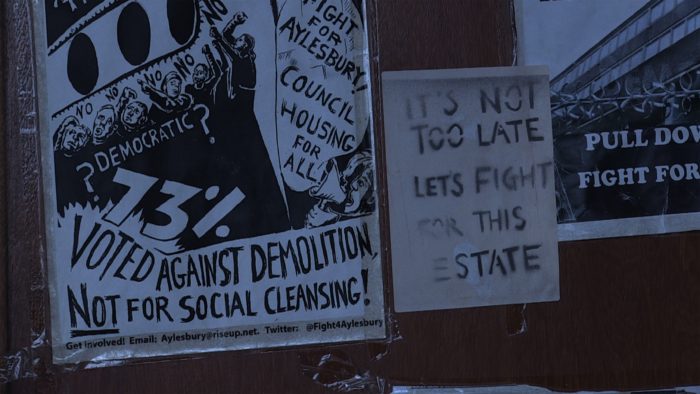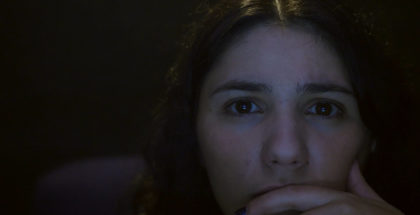Sheffield Doc/Fest film review: We’re Still Here
Review Overview
Housing crisis
6Inspirational residents
8Direct action
7Matthew Turner | On 03, Jul 2020
Director: Melissa Herman
Cast: Aysen Dennis, Tawanda Nayabango, Anita Kamara, Michelle Edwards, Truus Jansen, Paul Burnham
Watch We’re Still Here online in the UK: Doc/Fest Selects
Sheffield Doc/Fest has gone online for 2020, with films streaming until 10th July – and others streaming alongside cinema screenings in the autumn. For more information, click here – or see our picks from the festival line-up here
“They don’t like us to call it social cleansing, but what else is it?” So says Waltham Forest resident Michelle Edwards as she highlights areas of her community that have fallen into disrepair, thanks to what she believes is the deliberate neglect of councils trying to force protected residents to leave. That’s just one of the issues explored in this heartfelt and engaging documentary from director Melissa Herman, which was filmed over a period of four years.
The film follows a wide range of residents from different London boroughs, all of whom are engaged in the fight for secure social housing. The voices may be different, but the general problem is the same – all over London, developers, endorsed by local councils and housing associations, are demolishing housing estates in the name of “redevelopment”, building what they claim is affordable housing, although the reality is quite the opposite for most residents.
The film uncovers the dirty tricks used, from empty promises that residents will be given the “right to return” to giving tenants very little notice of plans to demolish their properties – former Newham resident Kawanda says the other tenants in his building were sent letters and all voted to be re-housed, but neither he nor his father ever saw the letter in question).
Throughout the film, Herman allows the residents to tell their stories in their own words, while occasionally contributing shocking facts and statistics in voiceover. These include the fact that tens of thousands of homes have been sold off, demolished or neglected over the last few decades and that there are over 50,000 people currently in temporary housing (meaning they could be evicted at short notice), many of whom are mothers with children.
The fact that no one in authority seems willing to fight for social housing is shocking. It’s always the same story – they focus on the improvements that redevelopment will bring to the area, without acknowledging that gentrification means kicking out the poorer communities that are already there. If anything, successive governments have made moves to encourage the trend – the 2016 Housing and Planning Act allows housing associations to sell their tenanted housing, meaning that socially housed tenants can become private tenants at a moment’s notice.
Herman’s diverse contributors movingly convey both the impact and the scope of the housing crisis, from key worker Truus Jansen’s tale of sudden rent increases of 40 per cent to student and single mother Anita being unable to live with her child to pensioner Judith Amanthis living with the anxiety that she could soon become a private tenant against her will.
The film’s most powerful section details the aftermath of the tragic Grenfell fire in 2017, when 72 people died, even though the Grenfell Action Group had repeatedly warned authorities that such a disaster was highly likely. However, as local resident Samia Badani points out, some good has risen from the ashes of the tragedy, because the community has been galvanised into both action and increased social care, as evidenced by her own operation, The SPACE.
We’re used to seeing rage-inducing resolutions in social issue documentaries, so it comes as something of a surprise to discover so many positive outcomes in the captions at the end of the film, even though there are negative outcomes too. The overriding message is that grass roots direct action can achieve results and that there is strength in numbers. As Kawanda remarks, while relating one such successful protest: “very powerful stuff”.
We’re Still Here is available to rent for £4.50 on Sheffield Doc/Fest Selects, or as part of a £36 pass, until 10th July 2020.




















